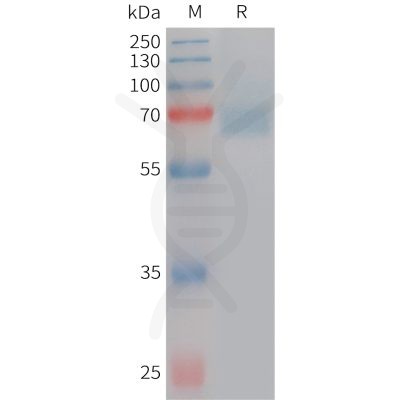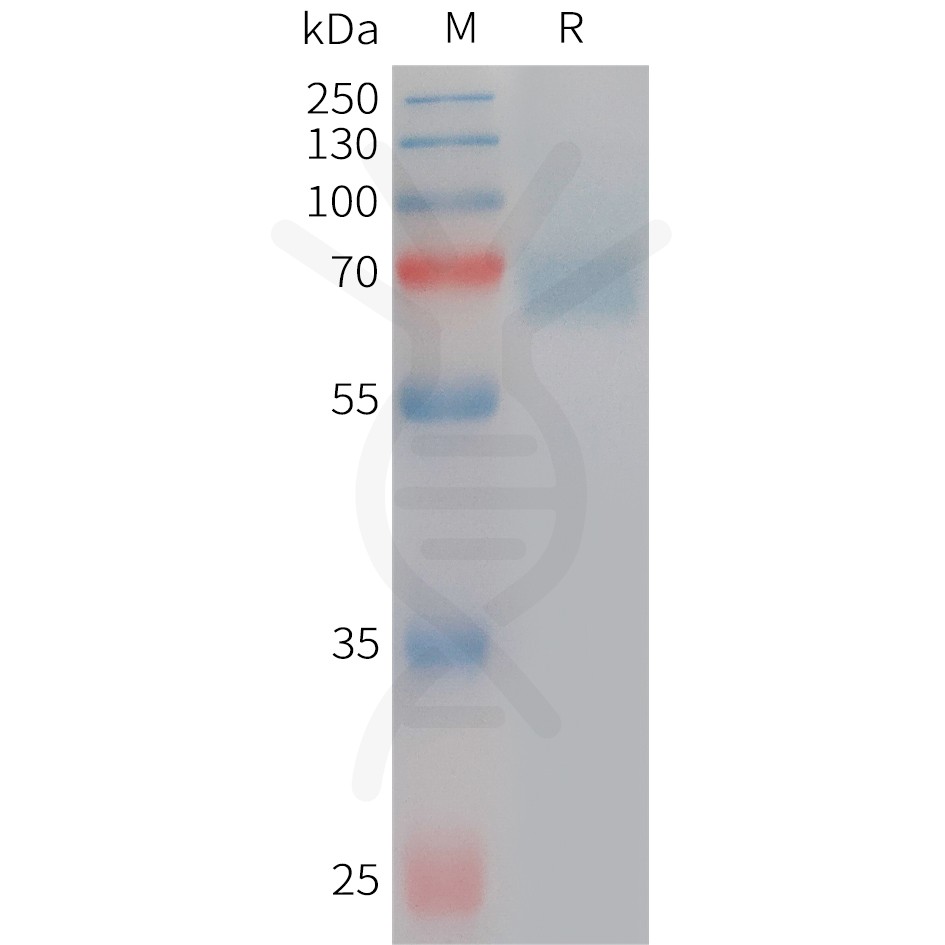| Target | |
|---|---|
| Synonyms | ACEE;ARACHE;N-ACHE;YT |
| Description | Recombinant Human ACHE Protein with C-terminal 6×His tag |
| Delivery | In Stock |
| Uniprot ID | P22303 |
| Expression Host | HEK293 |
| Tag | C-6×His Tag |
| Molecular Characterization | ACHE(Glu32-Leu614) 6×His tag |
| Molecular Weight | The protein has a predicted molecular mass of 65.4 kDa after removal of the signal peptide. The apparent molecular mass of ACHE-His is approximately 55-70 kDa due to glycosylation. |
| Purity | The purity of the protein is greater than 85% as determined by SDS-PAGE and Coomassie blue staining. |
| Formulation & Reconstitution | Lyophilized from sterile PBS, pH 7.4. Normally 5 % – 8% trehalose is added as protectants before lyophilization. Please see Certificate of Analysis for specific instructions of reconstitution. |
| Storage & Shipping | Store at -20°C to -80°C for 12 months in lyophilized form. After reconstitution, if not intended for use within a month, aliquot and store at -80°C (Avoid repeated freezing and thawing). Lyophilized proteins are shipped at ambient temperature. |
| Background | Acetylcholinesterase hydrolyzes the neurotransmitter, acetylcholine at neuromuscular junctions and brain cholinergic synapses, and thus terminates signal transmission. It is also found on the red blood cell membranes, where it constitutes the Yt blood group antigen. Acetylcholinesterase exists in multiple molecular forms which possess similar catalytic properties, but differ in their oligomeric assembly and mode of cell attachment to the cell surface. It is encoded by the single ACHE gene, and the structural diversity in the gene products arises from alternative mRNA splicing, and post-translational associations of catalytic and structural subunits. The major form of acetylcholinesterase found in brain, muscle and other tissues is the hydrophilic species, which forms disulfide-linked oligomers with collagenous, or lipid-containing structural subunits. The other, alternatively spliced form, expressed primarily in the erythroid tissues, differs at the C-terminal end, and contains a cleavable hydrophobic peptide with a GPI-anchor site. It associates with the membranes through the phosphoinositide (PI) moieties added post-translationally. AChE activity may constitute a sensitive biomarker of RBC ageing in vivo, and thus, may be of aid in understanding the effects of transfusion[provided by RefSeq, Sep 2019] |
| Usage | Research use only |
| Conjugate | Unconjugated |
Human ACHE Protein, His Tag
Price: 10μg $79.00; 50μg $281.00 ; 100μg $422.00
Product Data Dima FAQ
Images Dima FAQ

Figure 1.Human ACHE Protein, His Tag on SDS-PAGE under reducing condition.
Related Products
Full Length Transmembrane Proteins
SKU: FLP100798 Target: ACHE
This product is no longer available. Click here to view recommended products
Full Length Transmembrane Proteins
SKU: FLP120798 Target: ACHE
Price: 10 μg $810.00 ; 50 μg $3960.00 ; 100 μg $7200.00


